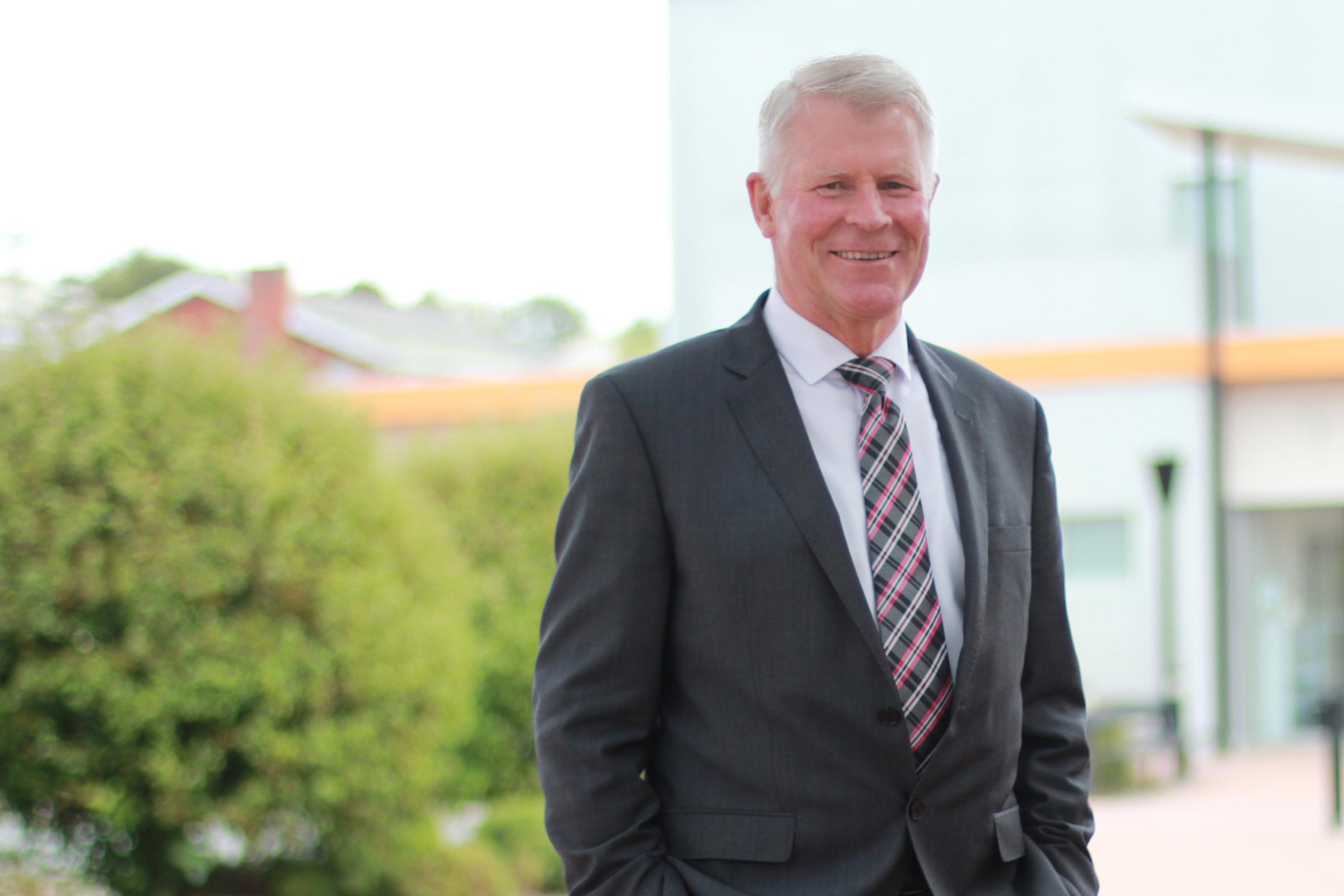From the Principal

The Goldilocks Zone
Our Senior students are in the middle of preparing and sitting important exams and assessments. There is a lot of pressure in this and I know that there have been many hours of hard work, late nights and early mornings. If they are anything like I was as a student, there would also be a fair degree of procrastination. These exams are designed to put some sort of objective measure on what a student has learnt and how well they can communicate this in a preordained format.
We are praying for our students as they enter this stage of their learning journey and hope and trust that they will be able to give a good account of the study, memorisation, understanding, application and synthesisation of the content they have learnt.
There is a concept in learning called the ‘Goldilocks Principle’ that is worth having a think about. No doubt you will remember the story of Goldilocks and the three bears. Goldilocks seeks to make herself comfortable in Mr Bear’s house. She has a definite opinion on the ideal conditions she likes in both beds and porridge. She is a specialist in her own desires and needs. She finds ‘just right’ only after dismissing ‘too hot’, ‘too cold’, ‘too hard’ and ‘too soft’. Scientists have coined the term ‘Goldilocks Zone’ when observing the remarkably ‘just right’ position of the Earth in our galaxy. For life to exist, our planet cannot be anywhere else. This ‘habitable zone’ is the region around a star where orbiting planets similar to the Earth can support liquid water. It is neither too hot, nor too cold. If Earth was a little too far one way it would be ‘too hot’. Too far the other way and it would be “too cold” to support life. We acknowledge God’s grand design in this fact.
There is a Goldilocks Zone for teaching and learning too. A student who finds the content being delivered either ‘too hard’ or ‘too easy’ may lose motivation. However, because the goal of learning is to advance knowledge and skill, we don’t always deliver information and activities that are ‘just right’ in the student’s perspective. The teacher’s sense of ‘just right’ will not only require the student to develop new skills and knowledge, but new character as they persist and struggle to understand. The skill of the teacher is to match the level of instruction to each student’s ability. We call this differentiation. The information and activities in class are made accessible for the variety of students by using both the craft and art of teaching. The process of student learning needs to be supported with information and encouragement. The central requirement of the student is to actively work with the teacher to comprehend the information. It is a struggle sometimes. It is usually hard work. Learning is fashioned from conversations. It usually is the result of long hours of sustained application.
| However, because the goal of learning is to advance knowledge and skill, we don’t always deliver information and activities that are ‘just right’ in the student’s perspective. |
I believe that this part of the process is a conversation between teacher, student and parent. Locating the Goldilocks Zone is not a lucky dip, nor a one-shot effort. It is a process of sharing, explanation, and negotiation. It might take some time and require commitment. We are growing a person not manufacturing an item. This is where the three-way partnership of teacher, student and parent is so vital.
There is also a Goldilocks Zone in how students like to learn. Much in this zone is valuable and efficient. However, much is also a comfort zone where ‘just right’ is very likely to mean ‘little effort’ and ‘quickly finished’. Just like Goldilocks in Mr Bear’s house, students look to achieve comfort often at the expense of learning. They like to use the quickest method to find the right answer. This economy of effort might be admirable, but is not always the teacher’s goal. We want students to think. Increasingly, we are choosing to disrupt their comfortable Goldilocks Zone. We are asking them to problem solve. We are calling them to use their creativity. We are becoming even more demanding in our desire for students to show originality of thought. All of these require significantly more effort than the comfort zone. Some students occasionally request that teachers change their lessons to require less thinking. The content isn’t ‘too hard’. The demands of thinking are different. There is every chance that these claims are echoing in living rooms as well as classrooms. My hope is that parents are able to rightly interpret the origin of any complaints. It is the ability to think that is to be prized. And the ability to think critically and from a Biblical perspective is to prized above all.
COVID – 19 Adjustments | |
The advice this week from the Tasmanian Department of Health is that from Monday 27th June 2022, Facemasks will no longer be mandatory in schools or Child and Family Learning Centres.
I must admit I was pleased to hear this news at first. On reflection, I suspect that it would have been a better call to extend the facemask mandate until the end of Term 2. The reasons that I support the wearing of facemasks until the end of Term 2 are as follows:
Facemasks are only one of a number of things we have in place in our LCS infection control strategy and we will be regularly visiting the effectiveness of these measures we currently have in place. During the Mid-Year break we will have the evidence from the impact of the lifting of the mask mandate. Further decisions about Term 3 will made according to any unfolding Public Health advice and the localised LCS situation.
It is important that everyone continues to:
Positive cases of COVID – 19 will still need to follow the required 7-day quarantine period required by the current Health Department protocols. Facemasks will still be required to be worn by close contacts of positive cases when they are in indoor settings outside the home. This includes indoor school settings for Staff and Secondary School students from 27th June.
Face masks, along with other COVID-safe behaviours, remain an important way to help reduce the risk of COVID-19. Although no longer mandatory, mask wearing is still strongly recommended in indoor settings, especially where physical distancing is not possible.
As a community I implore that we all do our best to keep each other and ourselves as safe as we possibly can. The wearing of facemasks can be a contentious topic and I encourage us all to treat each other with the utmost respect, regardless of our personal opinions on whether facemasks should be worn or not. While it’s my preference, from a school health and safety perspective, for secondary students and staff to continue wearing facemasks until the end of Term 2, I humbly ask that we honour each other, both those who choose to wear a facemask and those who choose to not wear a facemask. Facemasks will continue to be available to any student who requests a facemask.
Next week, during TCE and Year 10 exams, extra air purifiers will be positioned in the exam locations across the school. Facemasks will not be mandatory in exam settings, but will be optional for students who prefer to wear a facemask.
Blessings AB |
